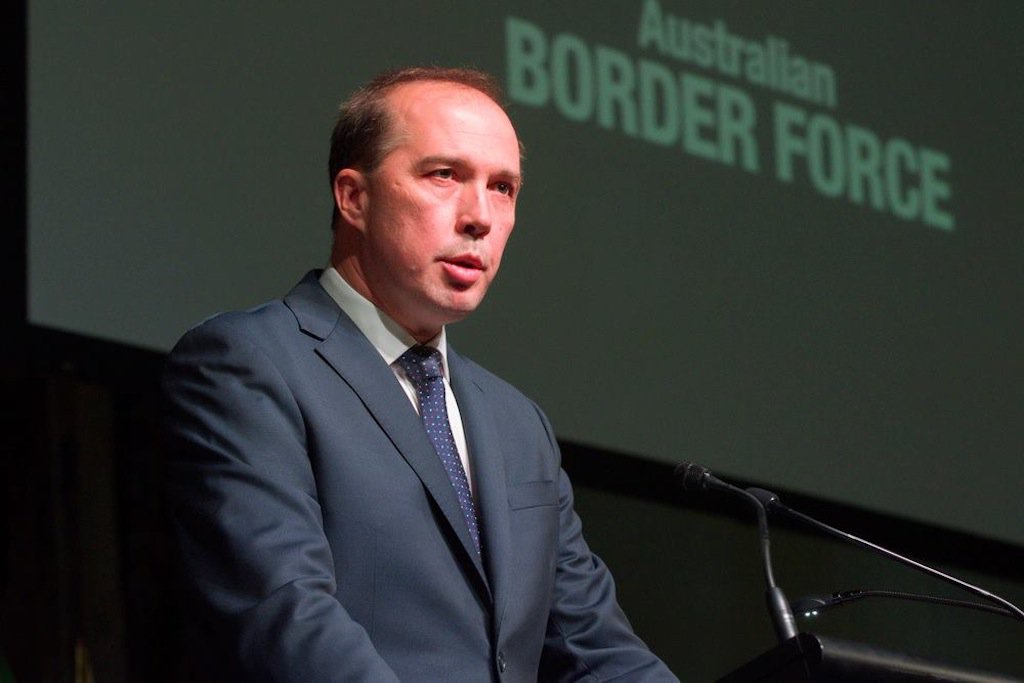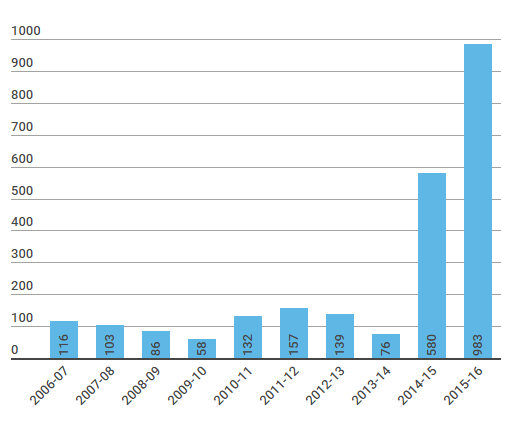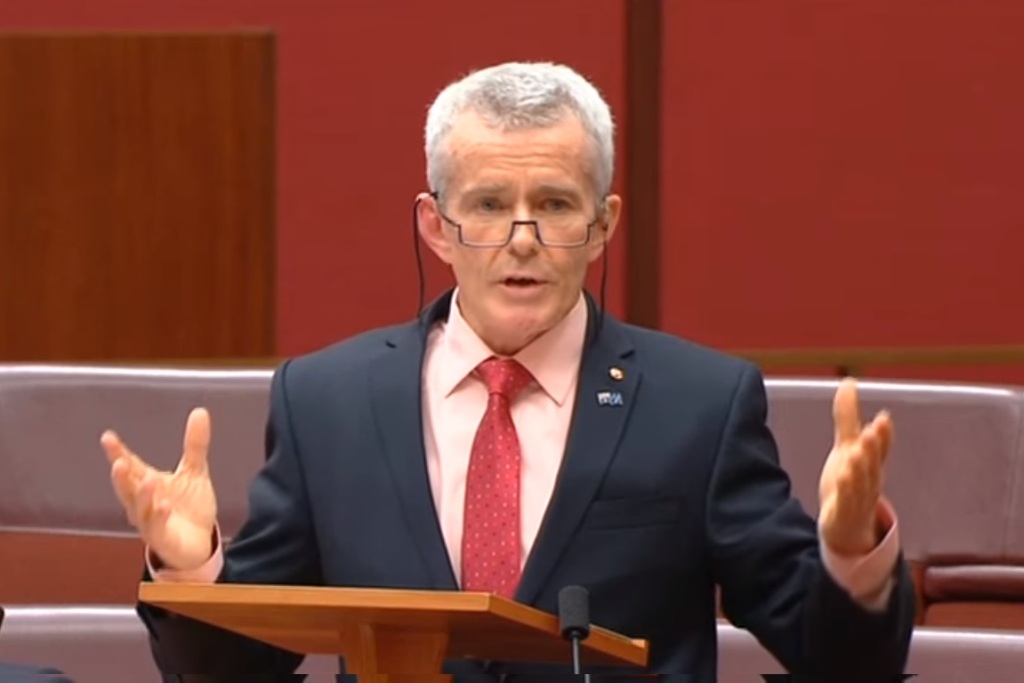Junk Explained: Why Is Australia Is Locking Up Record Numbers Of New Zealanders?
The number of deportations has increased ten fold since Peter Dutton took over.

Most of the attention Australia’s immigration detention system receives quite rightly focuses on the appalling way our government treats asylum seekers.
But under over the last couple of years the government has been detaining and deporting huge numbers of long-term Australian residents. New Zealand citizens currently make up the largest group being deported.
Australia’s hardline approach has been criticised by the New Zealand government. The former Prime Minister of New Zealand, John Key, raised the issue with Malcolm Turnbull back in 2015 and the country’s Labour opposition has called on the government to take the issue even more seriously.
Now the Commonwealth Ombudsman, who monitors the behaviour of government departments including the Department of Immigration and Border Protection, has chimed in. The Ombudsman has recently released two reports that heavily criticise the government’s approach to immigration detention and visa cancellations.
But why are we deporting record numbers of people in the first place?
–
Under Peter Dutton’s Watch Deportation Numbers Have Spiked
In 2014 only 76 residents had their visa cancelled as a result of criminal convictions. By 2016 that number had shot up to 983.

Number of visa cancellations between 2006 and 2016. Source: Commonwealth Ombudsman
More than half of the people who have had their visas cancelled are from New Zealand, and the second-largest group are from the UK.
The cancellations are occurring under Section 501 of the Migration Act. That section gives the immigration minister discretionary power to cancel the visa of an individual if they have broken the law. In December 2014, the same month Peter Dutton became the immigration minister, Section 501 was amended to make it mandatory for someone’s visa to be cancelled if they were found guilty of a crime and sentenced to prison for at least 12 months.
The amendments also gave the minister the power to cancel visas if they suspected an individual had ever been associated with an organisation linked to criminal behaviour (like a bikie gang), even if that person had never been convicted of any crime.
Since those amendments were passed the number of people being deported, or languishing in immigration detention, has shot up.
–
Long Term Residents Are Being Locked Up And Deported
The Ombudsman’s report found that many individuals were spending months in immigration detention due to the slow processing of their appeals, formally known as a “revocation request”.
One man, who migrated from the UK in 1986 and has lived in Australia since he was seven, had his visa revoked after he was sentenced to 15 months in prison for drug possession. He has appealed his visa cancellation but has been living in immigration detention for six months while he waits for an outcome. He has a fiancé and a two-year old child, both of whom are Australian citizens. If his visa is ultimately revoked he will be deported to the UK.
Another man, who moved to Australia from New Zealand when he was six, was sentenced to prison for 12 months for theft. He was released after serving only two months of his sentence and his now facing deportation. He also has an Australian partner and young children.
In a separate report the Ombudsman examined the powers the immigration minister has to cancel temporary bridging visas for anyone who is charged with a crime. The report found that many individuals had been unlawfully detained in immigration detention for long periods, despite not having committed a crime.
It also documented the experience of a pregnant woman who was placed in immigration detention after she was charged with assault. She later gave birth while living in detention and raised the child in the facility before being released after eight months.
–
New Zealand Isn’t Happy
Historically close links between Australia and New Zealand has made it easier for Kiwis to live and work here over the past few decades, and vice versa (though things got harder for New Zealanders in Australia post-2001) , which might explain the relatively high number of New Zealanders in immigration detention. But in 2015 New Zealand only deported two Australians.
Understandably, the New Zealand government has accused Australia of not treating its citizens with respect.
“There is an Anzac bond and an Anzac spirit. There’s a special relationship that surely means that we might get some treatment that’s different from other countries,” Prime Minister John Key said. “I think when it comes to New Zealand, where the threshold is currently set is in the wrong place.”
He called on the Australian government to reconsider the deportation of New Zealanders who had lived in the country for a long time. So far the Australian government hasn’t budged.
–
The Ombudsman’s Complaints
The Ombudsman’s reports made a number of specific recommendations to improve transparency and fairness in the current system. They also found that many of the people who were attempting to appeal visa cancellations had poor literary skills.
The Ombudsman, Colin Neave, said: “The ongoing detention of many individuals in this cohort is inappropriate and has negatively impacted upon their mental health.”
Neave also recommended that the Department of Immigration and Border Protection should process appeals much more quickly and prioritise cases involving children. He also called on the government to provide better support to the families of those being deported.
But it looks like the immigration minister isn’t too interested in taking on board Neave’s recommendations. A spokesperson for Peter Dutton told Fairfax that government made no apologies for strengthening deportation laws “to further protect the Australian community”.
The new Prime Minister of New Zealand, Bill English, is yet to comment on the controversy. But Labour and the Greens have been running a strong campaign, calling on the New Zealand government to take the issue more seriously.
If the Australian government keeps up the current rate of deportations, it could end up seriously impacting on relations between the two countries.

